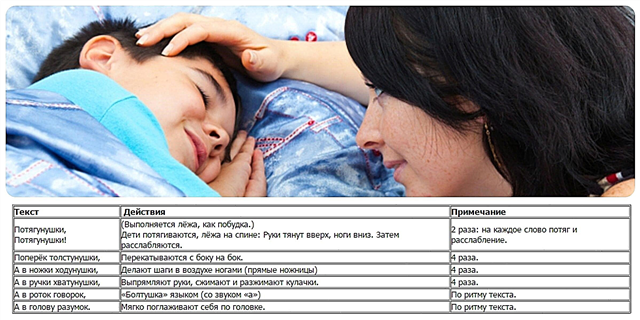
Some children absorb information well and remember even small details, others periodically forget their things somewhere, do not write down homework, learn poems and retell texts with difficulty. Having noticed the problem, it is difficult for parents to figure out what to do if the child is very poor at remembering information. For example, why can't a child remember colors? To remedy the situation, it is worth finding out what are the causes of poor memory, which specialist to contact and what exercises can help.
Main reasons
Memory development begins at an early age and is a gradual process.
In most cases, parents notice that the child has a poor memory in preschool age. They pay attention that some information is poorly stored in memory, for example, it is difficult for a baby to remember other people's names or colors.
Also, problems are often encountered in grade 1, when the child has to memorize a lot of new things, for example, a text while reading, which needs to be retelled. Difficulties can also be found in older children (9-11 years old and older) when assimilating a large amount of information in high school. At the same time, the reasons for poor memory are very different.

Daily regime
Disrupted daily routines are one of the common causes of problems with remembering and other thought processes. If there are many tasks in a child's life, he does not have time to have a good rest during the day and does not sleep well at night, it can impair memory, attention, and other brain functions.
A preschooler and younger student should not have an overload in the form of training and developmental activities. They impair memorization and reduce interest in learning. The night's sleep of the child should correspond to the age norm.
If the number of hours of rest at night is insufficient, and in the morning the child has difficulty getting up to school, mental activity will suffer, and all new information will be perceived worse.
Lack of vitamins
Thanks to a balanced diet, children receive all the elements important for their development, including useful vitamins that improve brain activity. The child's menu must include dishes from vegetables, nuts, herbs, fish, fruits, legumes. Children should consume foods with an excess of sugar, as well as salty and fried foods to a minimum.

Having adjusted the food, you can be sure that the lack of the necessary vitamins did not lead to health problems, including memory. If you still have doubts, you can consult a pediatrician and choose the best for your child multivitamin complex.
Few training
Constant exercise are required not only for physical development, but also to improve memory. If the child does not know how to memorize the necessary information, he should be taught them. For this purpose different benefits apply, presented in bookstores in a large assortment.
In addition, in many cities there are training groups for training memory, attention and other important skills that will be useful to the child in the future.
Neurological disorders
Impaired memory can act as one of the symptoms of encephalopathy, neurosis, hyperactivity syndrome and other diseases that diagnosed by a neurologist. For such problems, the doctor will recommend not only memorization training, but also special medications, which activate the brain and affect mental development.
Many of them have side effects, therefore they are used in extreme cases and only as directed by a specialist.

Other reasons
Other factors can also lead to problems with remembering, for example, the child does not have sufficient motivation and interest... In this case, he perfectly remembers what interested him, and information received at the school may be overlooked.
Memory impairments also occur as a result of psychological trauma. They develop some time after a traumatic event, for example, after a parent's divorce or moving to another city.
Diagnostics
If you have trouble remembering while attending pre-school or first grade classes, parents need to pay attention to behavior.
Find out if the child is really unable to answer questions and perform the simplest tasks, or if he simply does not like the team, rules, restrictions, increased requirements and similar nuances.
Track down in what situations is inattention still manifested and forgetfulness outside of school affairs.
To check shared memory ask your child about his day, last weekend, events of past New Year's holidays and the like. Lead a conversation about what not only your son or daughter knows, but you yourself, in order to understand if the answers are correct.
In most cases, children answer such questions. In case of memory lapses, it is worth considering a visit to a neurologist, as this may indicate brain dysfunction.

Next, assess the visual-object memory, for example, give a younger student 5-6 pictures, which depict objects that he understands, for example, a chair, a car, a saucepan, a book, an airplane, and so on. Offer to remember them and close your eyes while you remove 1 picture or turn it over. Normally, the child should remember which object "disappeared" after one or two attempts.
It gets a little harder if you ask not just remember objects, but also the order of their images, but also with this task 6-9 year old children with normal memory should cope no problem.
Note that in case of difficulties or mistakes, the cause is not only a violation of memorization, but also a low level of attention.
For testing auditory and speech memory of the child is called 3 words. When he repeats a given set of words twice, he is called 3 more words and again is given the opportunity to repeat them twice. After that, you are asked to say what the first words were, and then name the second words.
Another test for auditory speech memory is retelling a short story. Difficulties with such a task are encountered with a lack of memory or figurative thinking, poor hearing, a reduced level of attention, and poor speech development.
What exercises to do?
Preschoolers remember information well during play activities, so games are best suited for developing the memory of children 4-6 years old.

School-age children are also encouraged to engage in interesting activities with visual aids (photographs, objects, pictograms), since this way any information will be remembered better.
Before starting the activity, explain the rules and make sure the child understands them.
Games and exercises are selected depending on the type of memory that needs to be developed in the child.
- Active games with repetition of movements are well suited to stimulate motor memory. For example, you might tell your child to sit down, stand up, raise their arms up, and then jump on one leg. Having shown the movements in order, it is necessary to offer to repeat them from memory.
- To influence visual and figurative memory, they often use the addition of missing elements. You can show the child a picture, and then give him the same drawing, but without some details, and offer to restore the drawing as he remembered. Another popular game is to put 5-10 objects on the table in front of the child, offer to close your eyes, remove 1-3 objects and ask to answer which objects have disappeared.
- To develop auditory memory and the ability to come up with associations, you can invite your child to decipher words. For such an exercise, you need to name any object, asking to describe it, for example, name its color, properties, appearance, purpose.
- To develop long-term memory, ask your child about events during the day. Let the baby tell what he did in the morning, at lunch, in the afternoon, in the evening. Ask leading questions such as "What was breakfast in the garden?", "What was the new topic in the math class?"

Recommendations
Noticing that a daughter or son constantly forgets something, do not swear, but you need to pay more attention development and improvement of memory. If there is something alarming in the child's behavior, you should consult a doctor to make sure that there are no diseases that can affect the memorization of information.
In case of excessive workload and oversaturated schedule, you need to reconsider the need for additional classes and circles. Establishing the correct daily regimen, sufficient night sleep and good nutrition - these points should be emphasized first of all.
And only after that you can start using techniques and exercises that improve mental performance.
When composing classes, try to influence all types of memory so that the child's development is harmonious. Talk and read more, analyze the events of the day, discuss interesting topics. This will not only stimulate memory, but also have a good time together, expand vocabulary and help your child love books.
Learning a foreign language is also a good idea., since such knowledge will never be superfluous. It is also important to provide an adequate supply of oxygen for the brain to successfully remember new information. Frequent walks, sports sections, trips out of town will help with this.... A healthy lifestyle in general has a beneficial effect on brain activity, so you should not neglect its influence.




